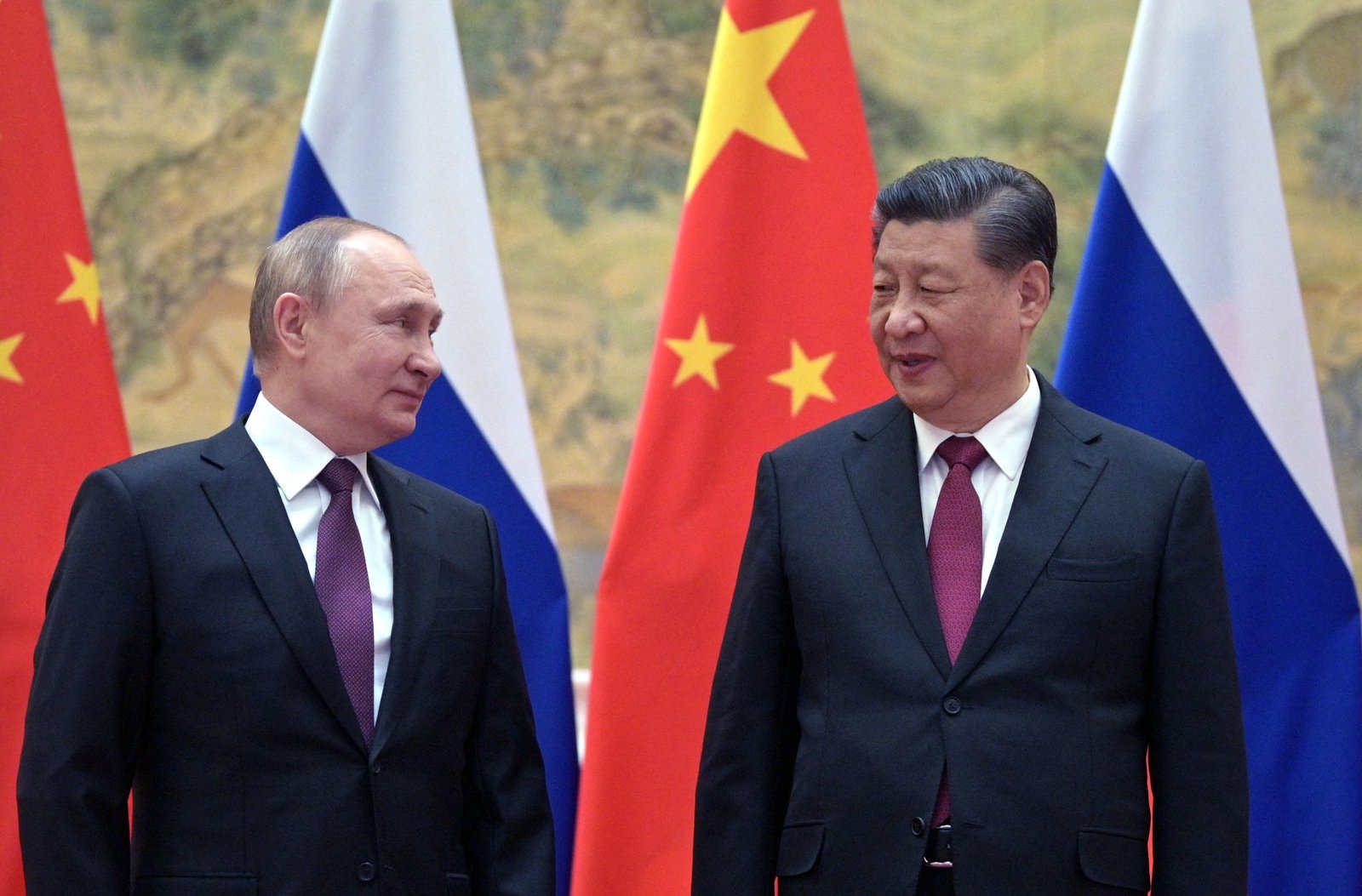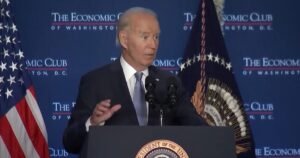The new warmth between Russia and China is just the latest American fumble as we slouch into a new cold war.

As recently as a generation ago, the U.S. foreign policy establishment seemed to take seriously Halford Mackinder’s theory of the Heartland, which posits that control of the Eurasian “World-Island” ultimately means control of the world. As such, an alliance between the two Eurasian giants, China and Russia, was something a generation of American strategists and diplomats worked to prevent. The strategic imperative to cleave apart Russia and China was given perhaps its most (in)famous expression by Gore Vidal, who worried that if the U.S. and Russia didn’t band together, we Americans would “end up as farmers—or, worse, mere entertainment—for more than one billion grimly efficient Asiatics.”
In the immediate aftermath of the overthrow of the Soviet government in December 1991, expectations were that Russia would return to the Western fold. Writing in 1993, the historian John Lukacs observed that “once Uzbeks, Turkmens, Mongols, the advance guard of ‘les Chinois,’ begin surging westward, it will be the Russians whose historic task will be to hold them up. Russia, the new frontier of what remains of Western civilization.”
Over the course of the three decades that have followed, such expectations have been dashed—perhaps permanently— thanks to the American establishment’s bipartisan project of isolating and ultimately anathematizing Russia. Indeed, among the most consequential geopolitical ramifications of the new Cold War and the NATO–Russia proxy war in Ukraine has been Russia’s turn away from the Occident toward the Orient.
Rarely has the picture been clearer.
On May 16, Russian president Vladimir Putin traveled to Beijing for a state visit, which resulted in a joint statement from Putin and his counterpart, China’s President Xi Jinping, that noted Russia and China’s concern over “the expansion of military alliances and creation of military bridgeheads close to the borders of other nuclear powers.” For his part, Putin, in an interview with Xinhua, the official state media outlet of China, portrayed the burgeoning China-Russia combine in glowing terms, noting that the partnership
has always relied on the principles of equality and trust, mutual respect for the sovereignty and consideration of each other’s interests. A special and prominent role in the development of our relations has belonged to wise and shrewd politicians and state leaders, such as Xi Jinping, President of the People’s Republic of China.
Upon his return to Moscow, Russia’s Foreign Minister Sergei Lavrov gave a remarkably frank public read-out of the Putin-Xi meeting. According to Lavrov, the meetings “reaffirmed that our comprehensive partnership and strategic interaction surpass traditional alliances of the past era.”
And a little over a week later, on May 27, China’s Vice Foreign Minister Deng Li announced that the forthcoming Ministerial Conference of the China–Arab States Cooperation Forum will, according to Deng, “issue a common voice between China and Arab countries on the Palestinian cause.”
China’s emerging role as a diplomatic power broker has not gone unnoticed in Washington. Last week, amidst an unusual amount of pomp and ceremony for an African head of state, President Biden—that stalwart friend of segregationists back in his Senate days—feted the Kenyan President William Ruto at a state dinner.
Speaking with CNN last week, the U.S. ambassador to Kenya, the former eBay executive Meg Whitman, noted that “for many, many years, it was really the Chinese who showed up in Africa and in Kenya,” but today Washington has a new, specific “message to Kenya and to the continent, which is: America wants to be your partner.”
Underscoring the foreign policy establishment’s newfound commitment to waging a new Cold War in Africa, the White House announced plans to designate Kenya as a “major non-NATO ally”—meaning it will join the ranks of 18 other so-designated nations, including Israel, Japan, Australia, and New Zealand, whose militaries benefit from expanded access to American military technology and equipment.
Yet, so far, the contest over Africa has yielded decidedly mixed results.
At home, the consequences of this new Cold War are both predictable and lamentable—further empowering, enriching and entrenching the defense industry and its many offshoots, without making us any safer. Indeed, the Chinese-Russian combine will not be an inconsiderable opponent. If we continue down the current path Biden and co. have put us on, the outcome may turn out quite differently from that of Cold War I.
The post China Is Eating the United States’ Diplomatic Lunch appeared first on The American Conservative.
Source: The American Conservative
TruthPukes Take:
- On May 16, Russian president Vladimir Putin traveled to Beijing for a state visit, which resulted in a joint statement from Putin and his counterpart, China’s President Xi Jinping, that noted Russia and China’s concern over “the expansion of military alliances and creation of military bridgeheads close to the borders of other nuclear powers.
- Underscoring the foreign policy establishment’s newfound commitment to waging a new Cold War in Africa, the White House announced plans to designate Kenya as a “major non-NATO ally”—meaning it will join the ranks of 18 other so-designated nations, including Israel, Japan, Australia, and New Zealand, whose militaries benefit from expanded access to American military technology and equipment.
- And a little over a week later, on May 27, China’s Vice Foreign Minister Deng Li announced that the forthcoming Ministerial Conference of the China–Arab States Cooperation Forum will, according to Deng, “issue a common voice between China and Arab countries on the Palestinian cause.










